Introduction
USES OF SUTINAT CAPSULE
- Kidney cancer
- Gastrointestinal stromal tumour
SUTINAT Capsule is used in the treatment of kidney cancer and gastrointestinal stromal tumor.
SUTINAT Capsule can be taken with or without food, but try to have it at the same time every day to get the most benefits. Your doctor will decide what dose is necessary and how often you need to take it. This will depend on what you are being treated for and may change from time to time. You should take it exactly as your doctor has advised. Taking it in the wrong way or taking too much can cause very serious side effects. It may take several weeks or months for you to see or feel the benefits but do not stop taking it unless your doctor tells you to.
Nausea, vomiting, weakness and weight loss are some common side effects of this medicine. The doctor may advise for regular monitoring of blood pressure and thyroid gland function while taking this medicine. It may decrease blood sugar levels. In fact, the levels can decrease to the extent that the patient may faint. So, if you are diabetic then it is important to check your blood sugar levels regularly. Additionally, you should also consult the doctor if the dose of anti-diabetic medicines needs to be adjusted. This medicine may affect wound healing time, so be careful while shaving, cutting fingernails or using sharp objects.
Before taking it, tell your doctor if you have heart disease, liver, or kidney problems or bleeding disorder. Many other medicines can affect, or be affected by, this medicine so let your healthcare team know all medications you are using. This medicine is not recommended during pregnancy or while breastfeeding. The use of effective contraception by both males and females during treatment is important to avoid pregnancy.
Warning & Precautions
Pregnancy & Breast Feeding
- SUTINAT Capsule is unsafe to use during pregnancy as there is definite evidence of risk to the developing baby. However, the doctor may rarely prescribe it in some life-threatening situations if the benefits are more than the potential risks. Please consult your doctor.
- SUTINAT Capsule is unsafe to use during breastfeeding. Data suggests that the drug may cause toxicity to the baby.
Driving & Using Machines
- SUTINAT Capsule may decrease alertness, affect your vision or make you feel sleepy and dizzy. Do not drive if these symptoms occur.
How to Use
- Take this medicine in the dose and duration as advised by your doctor.
- Do not chew, crush or break it.
- Take it with or without food, preferably at the same time each day.
- Diarrhea may occur as a side effect. Drink plenty of fluids and inform your doctor if it doesn't stop or if you find blood in your stools.
- Use a reliable contraceptive method to prevent pregnancy while you are taking this medicine and for a month after you stop taking it.
- It may affect wound healing time. Be careful while shaving, cutting fingernails or toenails, or using sharp objects.
- Monitor your blood pressure regularly while taking this medication. Inform your doctor if you notice symptoms of very high blood pressure such as severe headache, confusion, problems with your eyesight, nausea or vomiting.
- Monitoring of thyroid gland function is required while taking this medicine. Inform your doctor if you notice symptoms of weight gain, dry skin, and hair.
- It may cause serious bleeding problem. Inform your doctor if you get headaches, stomach pain or if you notice blood in your urine or stools.
- Inform your doctor about the consumption of SUTINAT Capsule before going for surgical procedure.
- Do not take this medicine if you are pregnant, planning to conceive or breastfeeding.
Side Effects
Like all medicines, this medicine can cause side effects, although not everybody gets them
Common
- Nausea
- Vomiting
- Weakness
- Rash
- Abdominal pain
- Indigestion
- Discoloration of skin
- Fatigue
- Fever
- Dry skin
- High blood pressure
- Diarrhea
- Constipation
- Painful blisters on hands and feet
- Stomatitis (Inflammation of the mouth)
- Hair discoloration
- Pain in extremity
- Back pain
- Headache
- Joint pain
- Weight loss
- Cough
- Taste change
- Breathlessness
HOW TO COPE WITH SIDE EFFECTS?
The occurrence of side effects varies from person to person. The following are a few ways of dealing with some of the common side effects. However, consult your doctor if these persist.
Coping with Nausea and Vomiting
You can help yourself by eating small, frequent meals rather than large ones and drinking plenty of fluids. Eat slowly. Avoid fatty, fried, spicy and very sweet foods. Eat cold or slightly warm food if the smell of cooked or cooking food makes you feel sick. Get plenty of fresh air. You could also try chewing ginger or drinking ginger tea. Eat bananas to replace potassium in your blood which can drop if you are sick (vomit). Use oral rehydration salts to replace vitamins and minerals lost through being sick. There are some medicines that can help you stop feeling sick. Speak to your doctor if your condition does not improve.
Coping with Rash
There are many treatments for a wide range of skin problems. Avoid hot showers or baths because hot water can irritate the skin. Make sure to pat your skin dry after a bath or shower. Do not rub or scratch the affected area. Leave the skin exposed to the air as much as possible. Do not use perfumed soaps or deodorants. Water containing chlorine can make most skin problems worse so avoid swimming. Avoid spicy foods, alcohol, tobacco smoke and caffeine as it may also make itching worse. Avoid excessive sun exposure, always use sunscreen and protective clothing when outdoors. Moisturizers can be used regularly to soothe and hydrate the affected area. If it does not get better within a week, speak to a pharmacist or doctor.
Coping with Headache
Make sure you rest and drink plenty of fluids. Rest in a quiet, dimly lit room. Do not sleep more than you normally would. Do not strain your eyes (for example by looking at a screen). Do not drink alcohol. Headaches are usually temporary and usually go away with time. Ask your doctor to recommend a painkiller if they last longer than a week or get worse.
FAQs
You should take SUTINAT exactly as directed by your doctor. It should be started by doctors who have experience in administering cancer medicines. Take it once a day with or without food. Do not drink grapefruit juice or eat grapefruit during your treatment with SUTINAT, as the chances of side effects may be more.
Q. Does SUTINAT have any effect on skin and hair?
During treatment with SUTINAT, your skin may get lighter and there may be hair loss. Also, patient may experience dryness, thickness or cracking of the skin, blisters, or rashes on the palms and soles. But, these side effects are reversible and go away once the medicine is stopped. SUTINAT may also cause serious skin reactions such as severe rash or rapidly spreading skin ulceration which could be fatal. Therefore, inform your doctor immediately if symptoms of infection occur around a skin injury. Let your doctor know if you have fever, pain, redness, swelling, or drainage of pus or blood.
Q. What is the most important thing I need to know about SUTINAT?
SUTINAT can cause serious side effects such as severe liver problems that can lead to death. Therefore, tell your doctor right away if you experience itching, yellow eyes or skin, dark urine or pain or discomfort in the right upper stomach area. Your doctor will get blood tests done to check your liver function before and during treatment with SUTINAT. In case you develop liver problems, your doctor may stop the medicine temporarily or permanently.
Q. Are generics available for SUTINAT? How does SUTINAT work?
There are no generics available for SUTINAT. SUTINAT blocks an enzyme which promotes the growth and spread of cancer cells. This enzyme is called protein kinase and is present on the surface of cancer cells. Blocking this enzyme stops the spread of cancer. Examples of other protein kinase inhibitors are erlotinib, gefitinib, lapatinib, vemurafenib and dasatinib.
Q. Can SUTINAT be used in combination with other chemotherapy medicines?
There are no studies that support the use of SUTINAT with other chemotherapy medicines. For example, SUTINAT is used in Gastrointestinal stromal tumour (GIST), a type of cancer of the stomach and bowel, when imatinib (another anticancer medicine) no longer works or the patient cannot take imatinib.
Q. Does SUTINAT have any effect on blood sugar levels in diabetics?
Yes, SUTINAT may decrease your blood sugar levels. Therefore, if you are a diabetic, you need to be extra careful since your blood sugar levels may become so low that you may become unconscious. Keep a regular check on the blood sugar levels, based on which your dose of anti-diabetics may be changed.
Q. Can SUTINAT cause any change in blood pressure?
Generally, SUTINAT is known to cause an increase in blood pressure. Therefore, it is important that you keep a regular check on your blood pressure levels. Inform your doctor if you have severe headache, dizziness, lightheadedness or change in vision. Your doctor may prescribe a medicine to treat the increase blood pressure or may stop your treatment temporarily till your blood pressure returns to normal.
 Disclaimer:
Disclaimer:The contents of this website are for informational purposes only and not intended to be a substitute for professional medical advice, diagnosis, or treatment. Please seek the advice of a physician or other qualified health provider with any questions you may have regarding a medical condition. Do not disregard professional medical advice or delay in seeking it because of something you have read on this website.

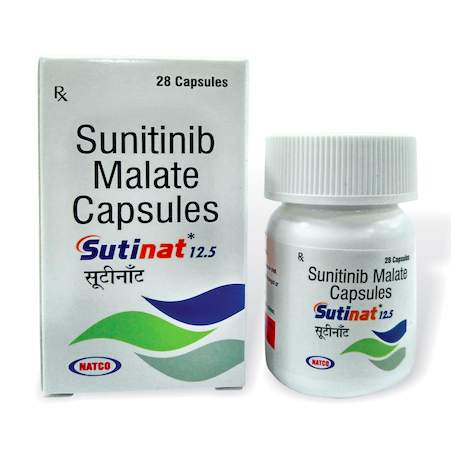
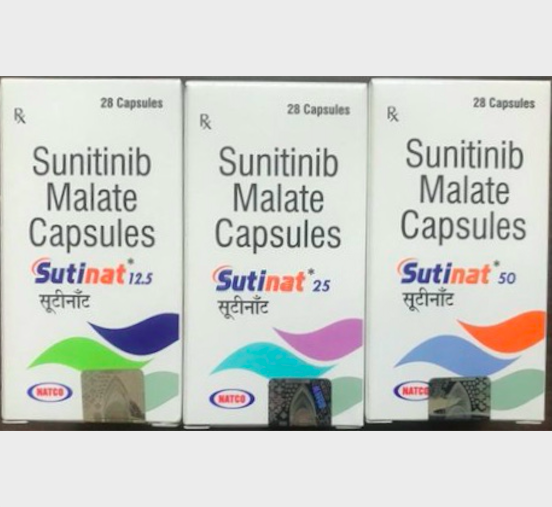
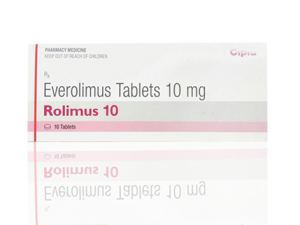
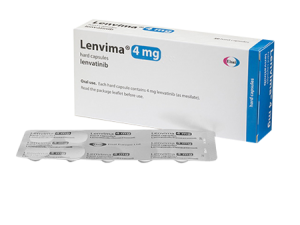
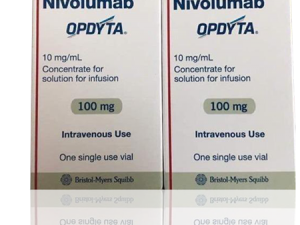

Reviews
There are no reviews yet.